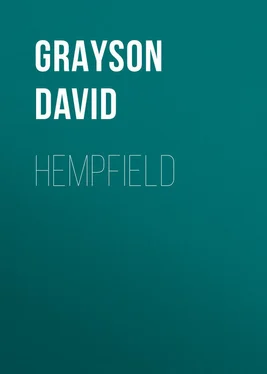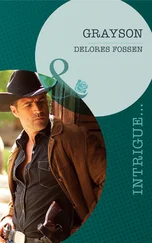David Grayson - Hempfield
Здесь есть возможность читать онлайн «David Grayson - Hempfield» — ознакомительный отрывок электронной книги совершенно бесплатно, а после прочтения отрывка купить полную версию. В некоторых случаях можно слушать аудио, скачать через торрент в формате fb2 и присутствует краткое содержание. Жанр: foreign_antique, foreign_prose, Историческая проза, на английском языке. Описание произведения, (предисловие) а так же отзывы посетителей доступны на портале библиотеки ЛибКат.
- Название:Hempfield
- Автор:
- Жанр:
- Год:неизвестен
- ISBN:нет данных
- Рейтинг книги:3 / 5. Голосов: 1
-
Избранное:Добавить в избранное
- Отзывы:
-
Ваша оценка:
- 60
- 1
- 2
- 3
- 4
- 5
Hempfield: краткое содержание, описание и аннотация
Предлагаем к чтению аннотацию, описание, краткое содержание или предисловие (зависит от того, что написал сам автор книги «Hempfield»). Если вы не нашли необходимую информацию о книге — напишите в комментариях, мы постараемся отыскать её.
Hempfield — читать онлайн ознакомительный отрывок
Ниже представлен текст книги, разбитый по страницам. Система сохранения места последней прочитанной страницы, позволяет с удобством читать онлайн бесплатно книгу «Hempfield», без необходимости каждый раз заново искать на чём Вы остановились. Поставьте закладку, и сможете в любой момент перейти на страницу, на которой закончили чтение.
Интервал:
Закладка:
But Nort, however impatient he may be getting, will have to wait even a little while yet, for notable events were to occur in the printing-office just before he arrived, without which, indeed, he never could have arrived at all. If it had not been for the ploughing and harrowing of Ed Smith, painful as it was to that ancient and sedate institution, the Hempfield Star , there never would have been any harvest for Norton Carr, nor for me, nor for Anthy. So good may come even out of evil.
As I narrate these preliminary events, however, you will do well to keep in your thought a picture of Nort going about his pleasures – I fear, at that time, somewhat unsteadily – in the great city, not knowing in the least that chance, assisted by a troublesome organ within called a soul, was soon to deposit him in the open streets of a town he had never heard of in all his life, but which was our own familiar town of Hempfield.
The thought of Nort looking rather mistily down the common – he was standing just in front of the Congregational Church – and asking, "What town am I in, anyhow?" lingers in my memory as one of the amusing things I have known.
Late in June I began to feel distinctly the premonitory rumblings and grumblings of the storm which was now rapidly gathering around the Star . It was a very clever Frenchman, I believe – though not clever enough to make me remember his name – who, upon observing certain disturbances in the farther reaches of the solar system, calculated by sheer mathematical genius that there was an enormous planet, infinitely distant from the sun, which nobody had yet discovered.
It was thus by certain signs of commotion in one of its issues that I recognized a portentous but undiscovered Neptune, which was plainly disturbing the course of the Star . A big new advertisement stared at me from the middle of the first page, and there was a certain crisp quality in some of the reading notices – from which the letters "adv" had been suspiciously omitted – the origin of which I could not recognize. The second week the change was even more marked. There were several smart new headings: "Jots and Tittles from Littleton," I remember, was one of them, and even the sanctity of the editorial column had been invaded with an extraordinary production quite foreign to the Captain's pen. It was entitled:
I can scarcely describe how I was affected by these changes; but I should have realized that any man bold enough to hitch his wagon to a star must prepare himself for a swift course through the skies, and not take it amiss if he collides occasionally with the heavenly bodies.
I think it was secretly amusing to Harriet during the weeks that followed my first great visit to the printing-office to watch the eagerness with which I awaited the postman on the publication days of the Star . I even went out sometimes to meet him, and took the paper from his hand. I have been a devoted reader of books these many years, but I think I have never read anything with sharper interest than I now began to read the Star . I picked out the various items, editorials, reading notices, and the like, and said to myself: "That's the old Captain's pungent pen," or "Anthy must have written that," or "I warrant the Scotchman, Fergus, had a finger in that pie." As I read the editorials I could fairly see the old Captain at his littered desk, the cat rubbing against his leg, the canary singing in the cage above him, and his head bent low as he wrote. And I was disturbed beyond measure by the signs of an unknown hand at work upon the Star .
"I thought, David, you did not care for country newspapers," said my sister.
She wore that comfortably superior smile which becomes her so well. The fact is, she is superior.
"Well," said I, "you may talk all you like about Browning and Carlyle – "
"I have not," said my sister, "referred to Browning or Carlyle."
"You may talk all you like" – I disdained her pointed interruption – "but for downright human nature here in the country, give me the Hempfield Star ."
Once during these weeks I paid a short obligatory visit to the printing-office, and gave Anthy the name of my uncle in California and got the envelopes that had been printed for me. I also took in a number of paragraphs relating to affairs in our neighbourhood, and told Anthy (only I did not call her Anthy then) that if agreeable I would contribute occasionally to the Star . She seemed exceedingly grateful, and I liked her better than ever.
I also had a characteristic exchange with Fergus, in which, as usual, I came off worsted. In those troublous days Fergus was the toiling Atlas upon whose wiry shoulders rested the full weight of that heavenly body. He set most of the type, distributed it again, made up the forms, inked the rollers, printed the paper (for the most part), did all the job work which Hempfield afforded, and smoked the worst pipe in America.
When I told him that I was going to write regularly for the Star and showed him the paragraphs I had brought in (I suspect they were rather long) this was his remark:
"Oh, Lord, more writers!"
It was on this occasion, too, that I really made the acquaintance of the Captain. He was in the best of spirits. He told me how he had beaten the rebels at Antietam. I enjoyed it all very much, and decided that for the time being I would suspend judgment on the pipe incident.
One day I reached the point where I could stand it no longer. So I hitched up the mare and drove to town. All the way along the road I tried to imagine what had taken place in the printing-office.
I thought with a sinking heart that the paper might have been sold, and that my new friends would go away. I thought that Anthy might be carrying out some new and vigorous plan of reconstruction, only somehow I could not feel Anthy's hand in the changes I had seen.
It was all very vivid to me; I had, indeed, a feeling, that afterward became familiar enough, that the Star was a living being, struggling, hoping, suffering, like one of us. In truth, it was just that.
No sooner had I turned in at the gate than I perceived that some mysterious and revolutionary force had really been at work. The gate itself had acquired two hinges where one had been quite sufficient before, and inside the office – what a change was there! It was not so much in actual rearrangement, though the editorial desk looked barren and windswept; it was rather in the general atmosphere of the place. Even Tom, the cat, showed it: when I came in at the door he went out through the window. He was scared! No more would he curl himself contentedly to sleep in editorial chairs; no more make his bed in the office wastebasket. Though it was still early in the morning, Fergus was not reading "Tom Sawyer." No, Fergus was hard at work, and didn't even look around when I came in.
Anthy was there, too, in her long crisp gingham apron, which I always thought so well became her. She had just put down her composing stick, and was standing quite silent, with a curious air of absorption (which I did not then understand), before the dingy portrait of Lincoln on the wall just over the cases. On her desk, not far away, a book lay open. I saw it later: it was Rand's "Modern Classical Philosophers." It represented Anthy's last struggling effort to keep on with her college work. In spite of all the difficulties and distractions of the printing-office, she had never quite given up the hope that some day she might be able to go back and graduate. It had been her fondest desire, the deepest purpose of her heart.
As she glanced quickly around at me I surprised on her face a curious look. How shall I describe it? – a look of exaltation, and of anxiety, too, I thought. But it passed like a flash, and she gave me a smile of friendly recognition, and stepped toward me with the frank and outright way she had. It gave me a curious deep thrill, not, I think, because she was a woman, a girl, and so very good to look upon, but because I suddenly saw her, the very spirit of her, as a fine, brave human being, fighting one of the hard and bitter fights of our common life. I do not pretend to know very much about women in general, and I think perhaps there is some truth in one of Nort's remarks, made long afterward:
Читать дальшеИнтервал:
Закладка:
Похожие книги на «Hempfield»
Представляем Вашему вниманию похожие книги на «Hempfield» списком для выбора. Мы отобрали схожую по названию и смыслу литературу в надежде предоставить читателям больше вариантов отыскать новые, интересные, ещё непрочитанные произведения.
Обсуждение, отзывы о книге «Hempfield» и просто собственные мнения читателей. Оставьте ваши комментарии, напишите, что Вы думаете о произведении, его смысле или главных героях. Укажите что конкретно понравилось, а что нет, и почему Вы так считаете.












